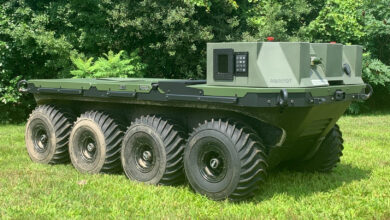The US State Department has cleared both Poland and the Netherlands to purchase extended-range Advanced Anti-Radiation Guided Missiles (AARGM) from Northrop Grumman.
In an announcement Wednesday, Washington said it is granting Warsaw’s request for 360 AARGMs, dummy training missiles, and associated support equipment worth $1.3 billion.
The US is also providing GPS receivers, software, and engineering and logistical support services in relation to the potential deal.
The extended-range weapons will allow Poland to strengthen its ability to suppress and destroy land- or sea-based radar emitters associated with enemy air defenses, the statement said.
They will also help improve the survivability of Polish warplanes by denying the effective use of enemy air defense systems.
Sale to Netherlands
In a separate announcement, the US State Department said Amsterdam is cleared to buy 265 AARGM-ERs for $700 million.
It also revealed that the European country requested eight AARGM-ER guidance sections, eight control sections, and associated spare and repair parts.
Additionally, the Netherlands will receive dummy training missiles, an embedded GPS receiver, and M-Code should it proceed with the sale.
Washington said the proposed sale would support its foreign policy as it would improve the security of an important NATO ally.
It would also allow Amsterdam to meet current and future threats amid increasing regional tensions.
The State Department assured that there will be no adverse impact on US defense readiness as a result of the two potential sales.
About the AARGM
Northrop’s AARGM is designed to suppress or destroy enemy air defenses, particularly relocatable integrated air defense targets and targets that utilize shutdown tactics.
It has an operational range of more than 60 nautical miles (69 miles/111 kilometers) and an engagement speed of Mach 2.
The weapon has undergone numerous trials, successfully detecting, locating, and engaging an advanced, land-based emitter target.












